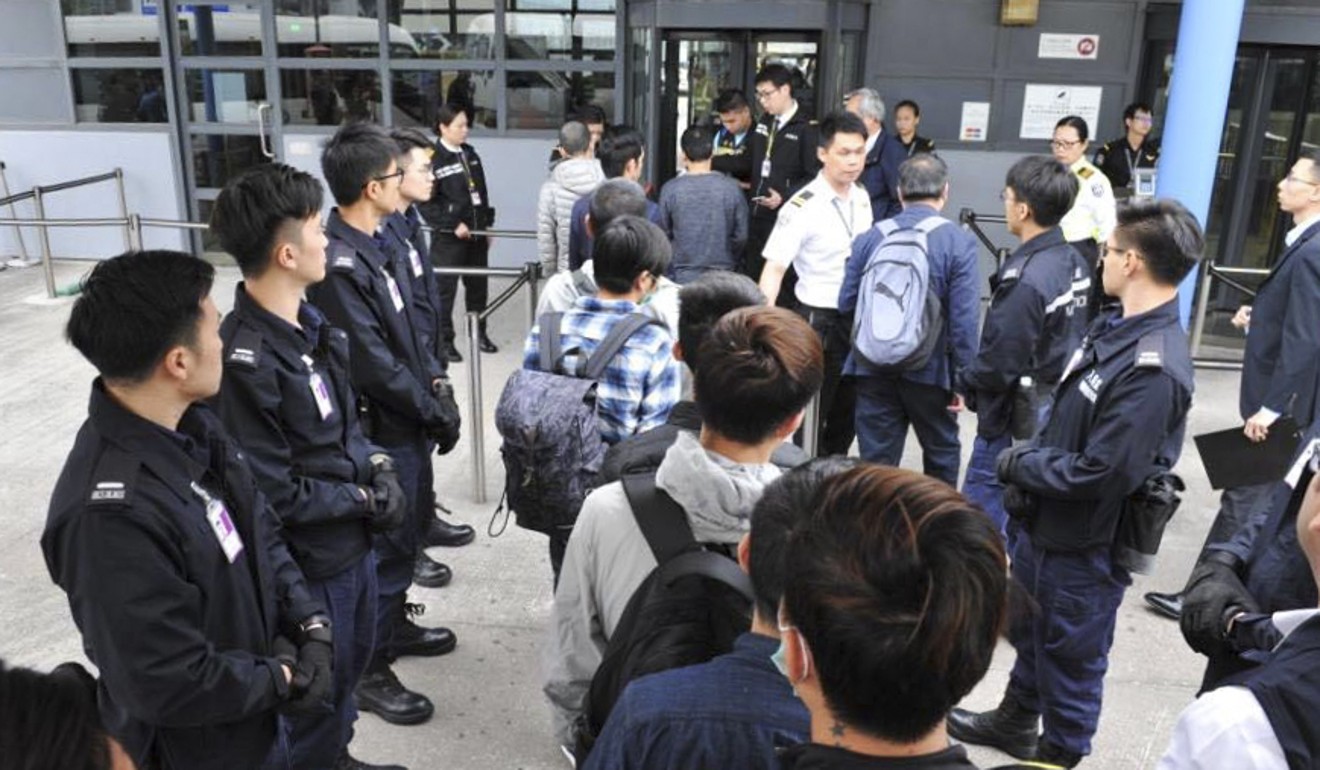
Tougher measures proposed for overstayers with jobs and employers of illegal workers as Hong Kong government seeks to deter economic migrants
- Security Bureau suggests raising maximum penalty for hirers from three years in prison to 10
- Overstayers caught working could face a three-year jail term, up from the current two
The Security Bureau wants tougher penalties for employers that hire illegal workers as it seeks to deter economic migrants from coming to Hong Kong.
On Thursday, authorities proposed that the maximum penalty for employing illegal workers be raised from three years in prison to 10 years under a proposed amendment to the Immigration Ordinance. The maximum fine would also increase by almost 43 per cent, to HK$500,000 (US$64,100).
Visitors overstaying and caught working, either paid or unpaid, would also face a harsher charge, of taking unlawful employment, which carries a three-year jail term.
Fighting for the right to stay: for children born in Hong Kong to domestic workers
Presently, overstayers caught working illegally can only be jailed for a maximum of two years for breaching their conditions of stay.
The proposal was one of the measures the government rolled out to address an influx of economic migrants seeking jobs in the city, where less than 1 per cent of applicants claiming refugee status had their humanitarian case substantiated.
“To further reduce the economic incentives for potential non-refoulement claimants to come to Hong Kong, and to strengthen our efforts in combating the offence of employing persons who are not lawfully employable, we are considering amending the relevant provisions to increase the penalties,” the paper, submitted to the Legislative Council by the bureau, read.
Non-refoulement is the principle of not sending someone to a place where they may be persecuted.

It said the Immigration Department had continued to step up targeted inspections, intelligence gathering, and raids on venues such as factories, recycling centres and warehouses.
Although the measures were proposed to deter asylum seekers from working in the city, the amended law would also cover all who overstay their welcome, including those from mainland China.
Official figures show the department prosecuted 275 employers for hiring illegal workers in 2017, and 1,594 illegal workers. In the same year, 1,736 workers were arrested for illegal employment, including 1,084 from the mainland.
Unsuccessful asylum seekers, illegal immigrants sent back on chartered flight
The number of asylum seekers claiming refugee status in Hong Kong reached a peak in 2015, with immigration officials dealing with 480 new cases a month in the second half of the year. That compared with 102 cases monthly on average between 2010 and 2013. The backlog of cases in 2015 reached 10,922.
As of September last year, there were 1,743 cases waiting to be screened. The department has so far substantiated 141 cases, or 0.7 per cent, of 19,377 applications.
The authorities proposed to streamline and speed up the screening process by cutting the time limit for submitting a claim from 49 days to 14.
The bureau also proposed that applicants must lodge claims within three months of the date they entered the city illegally or overstayed.
Explainer: how Hong Kong has for decades been a migrant magnet
“Late claims will not be handled,” the paper stated.
The bureau told Legco in 2016 that 51 per cent of claimants were smuggled into Hong Kong, while 43 per cent were visitors who had overstayed.
Illegal immigrants had on average remained in the city for 11 months before lodging a claim, while that grew to 19 months for those who stayed beyond the date they were required to leave under their terms of entry.
Social worker Jeffrey Andrews, who has helped asylum seekers, said the proposed changes were not going to affect refugees who were recognised by the United Nations.
“The recognised ones would never take up illegal work,” Andrews said. “They want to get out of Hong Kong with a clean record and resettle outside.”
Dr Flora Lau Pui-yan, an associate professor at Shue Yan University’s sociology department, said some refugees were driven to illegal work because of limited financial support.
“Although in nature it is illegal work, the policy [of not allowing claimants to find a job] leads to a lack of an alternative source of financial support, and the deprivation of opportunities to contribute,” Lau said.
She added asylum seekers got HK$1,200 in food coupons, HK$1,500 in rent subsidy and HK$300 for transport per month.
Democratic Party lawmaker James To Kun-sun, deputy chairman of the Legislative Council’s security panel, said there was insufficient evidence to link refugees to illegal work.
To noted most of the people arrested for illegal work in 2017 were from the mainland, and that the government did not say how many non-refoulement claimants were caught.
“If the government is just responding to the concerns of some people, it is not being scientific and objective,” To said.


